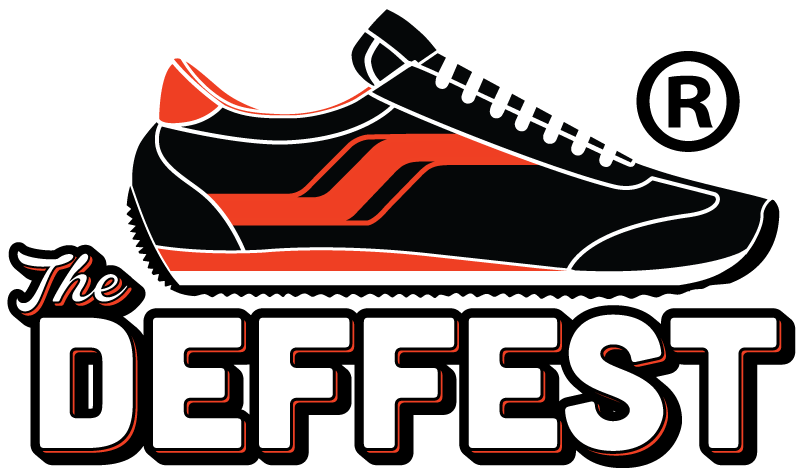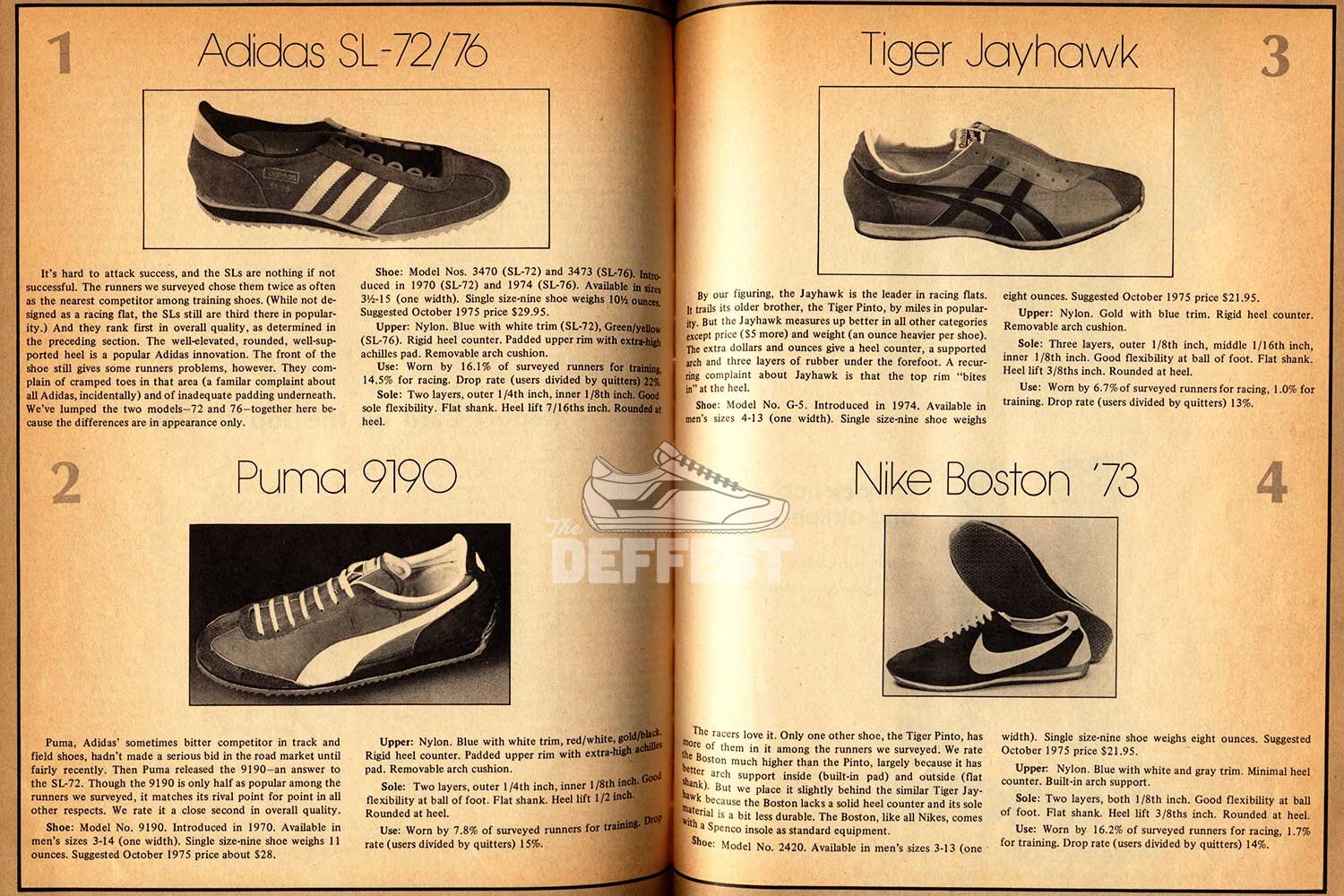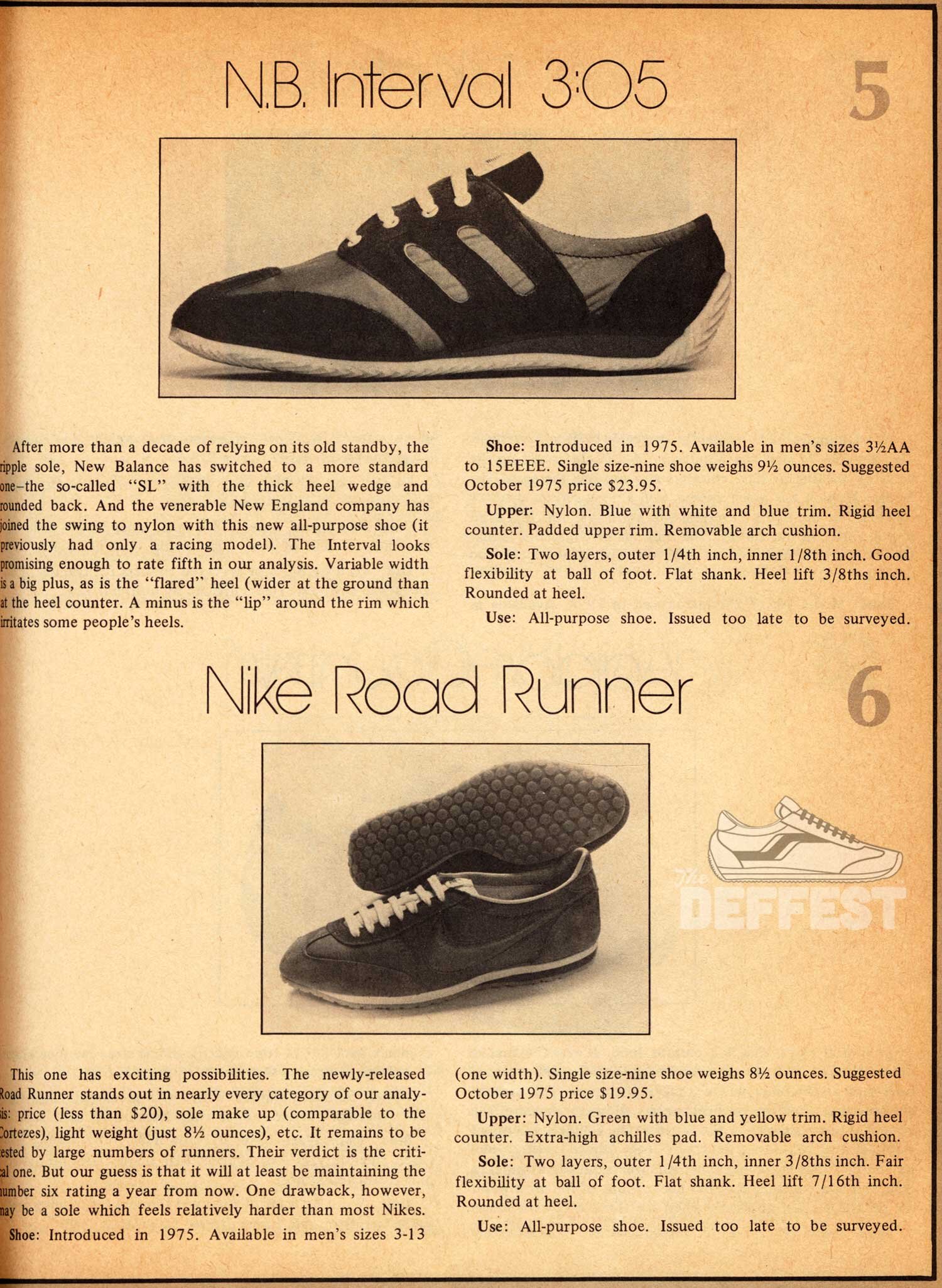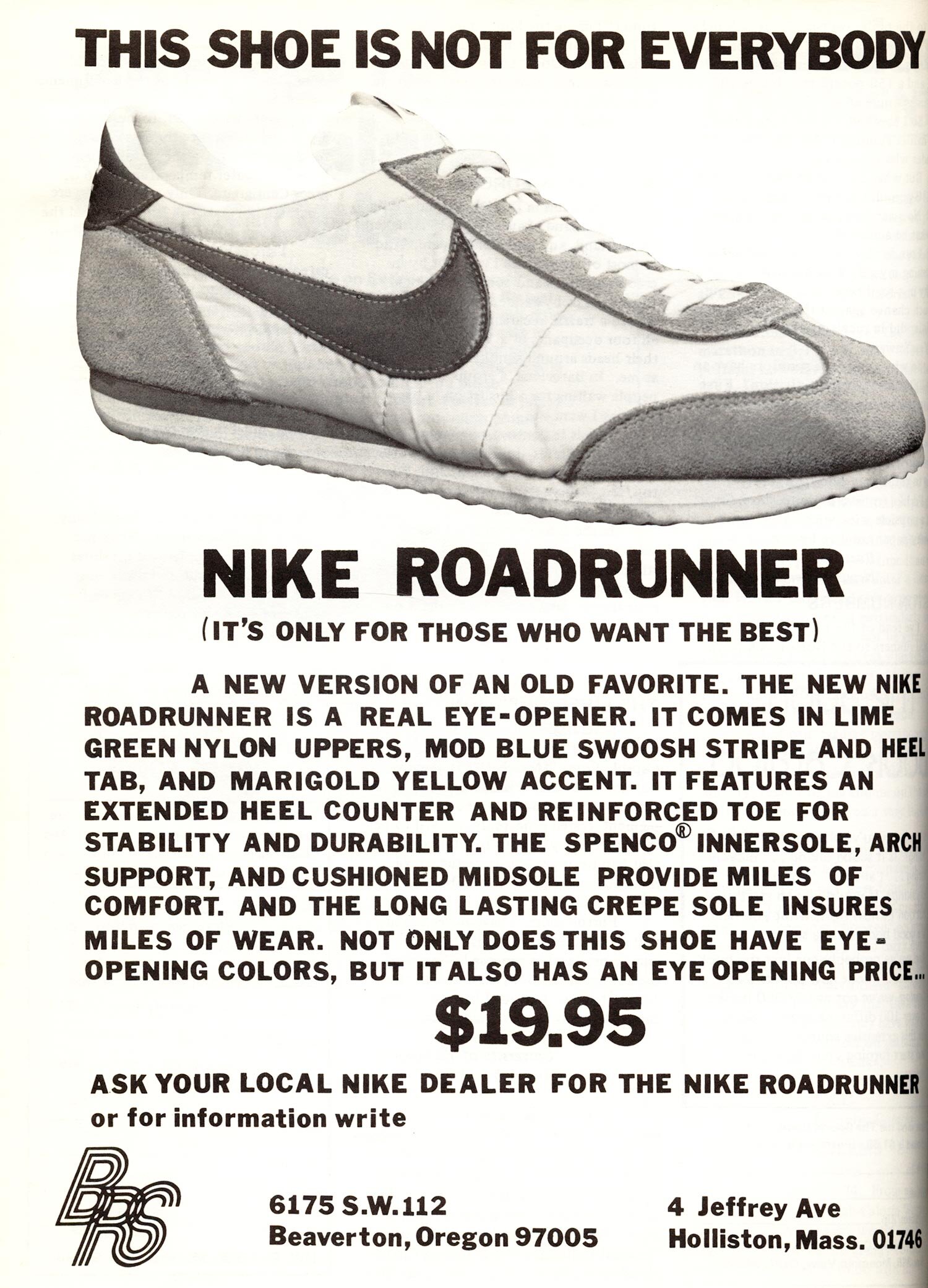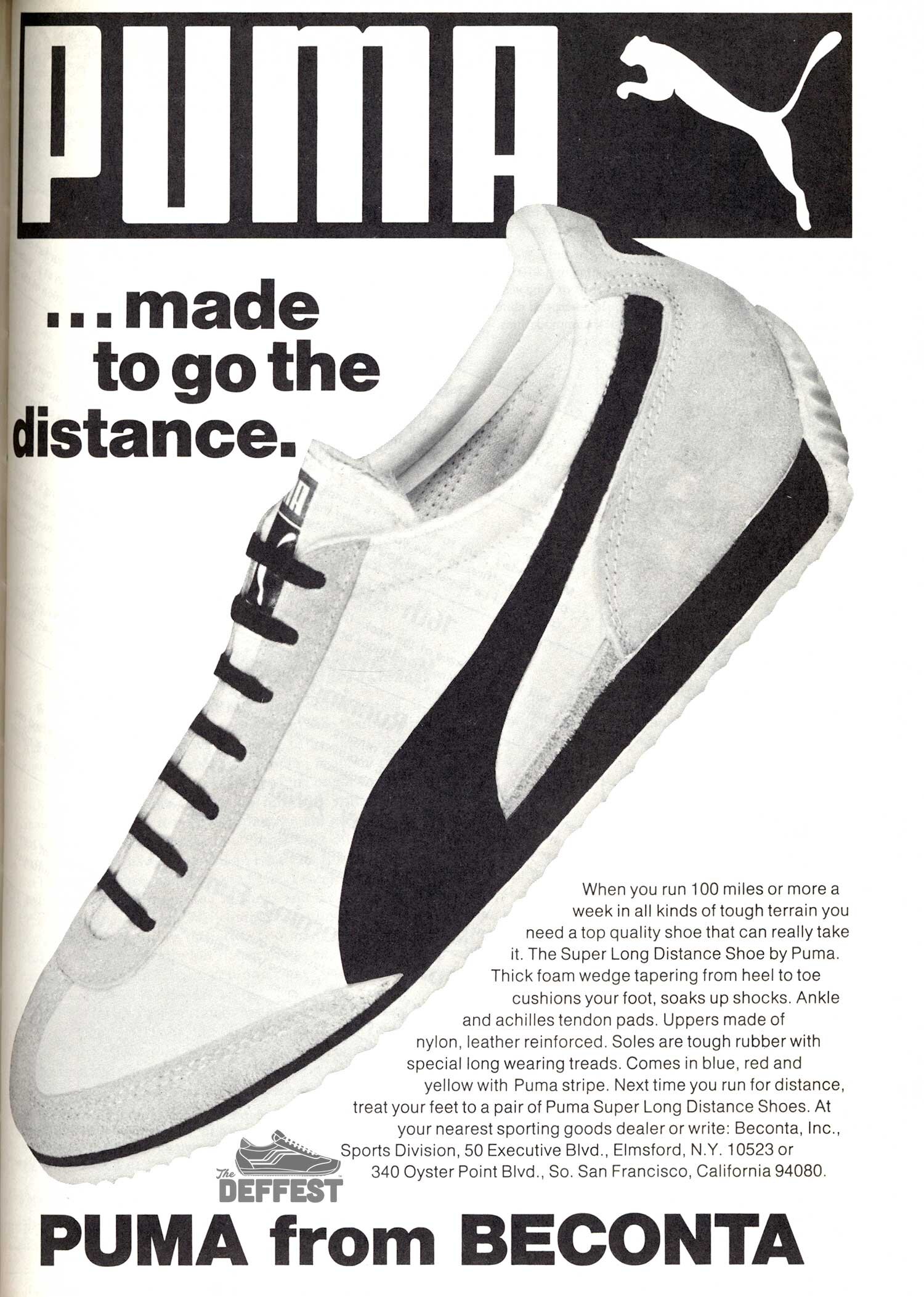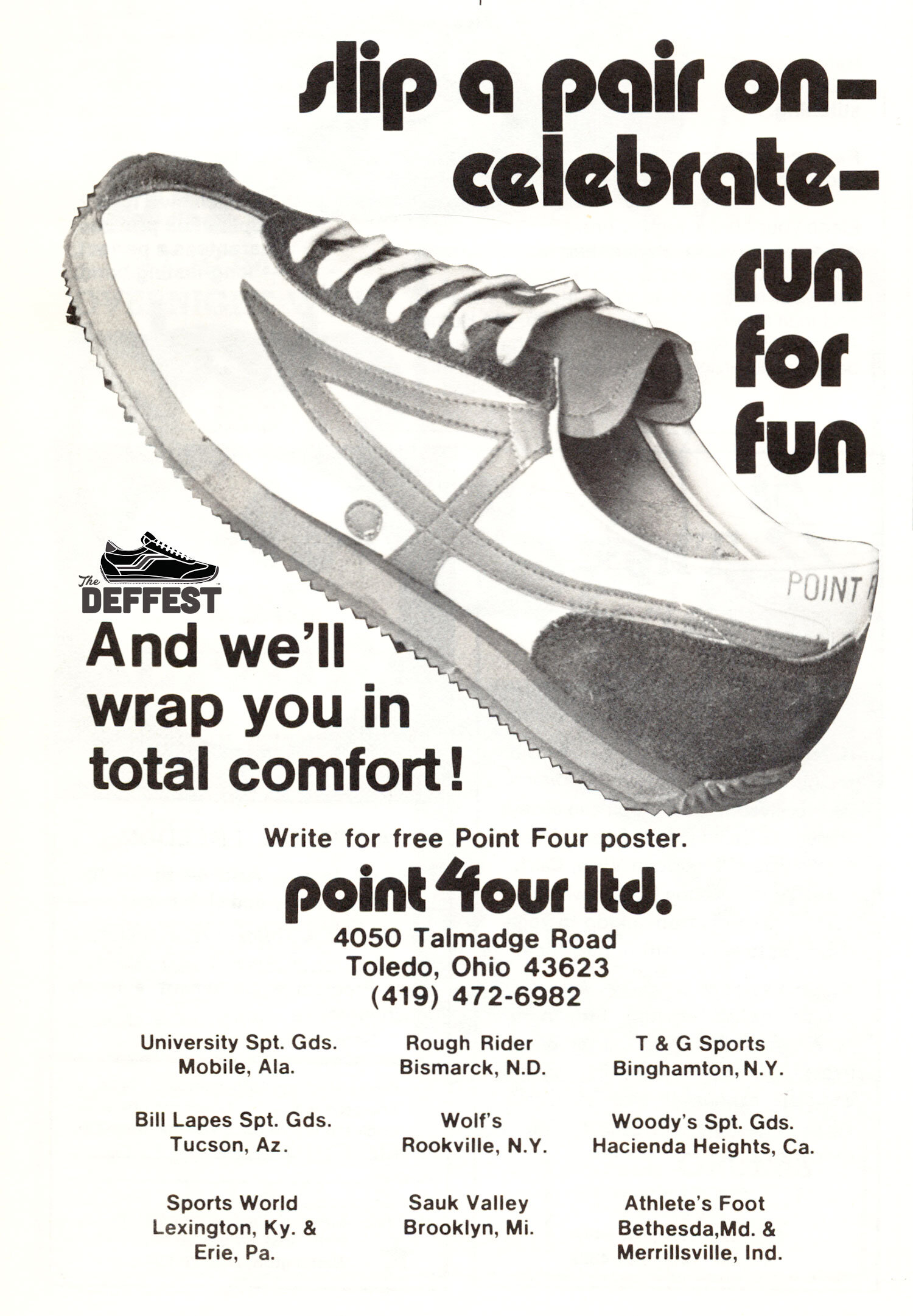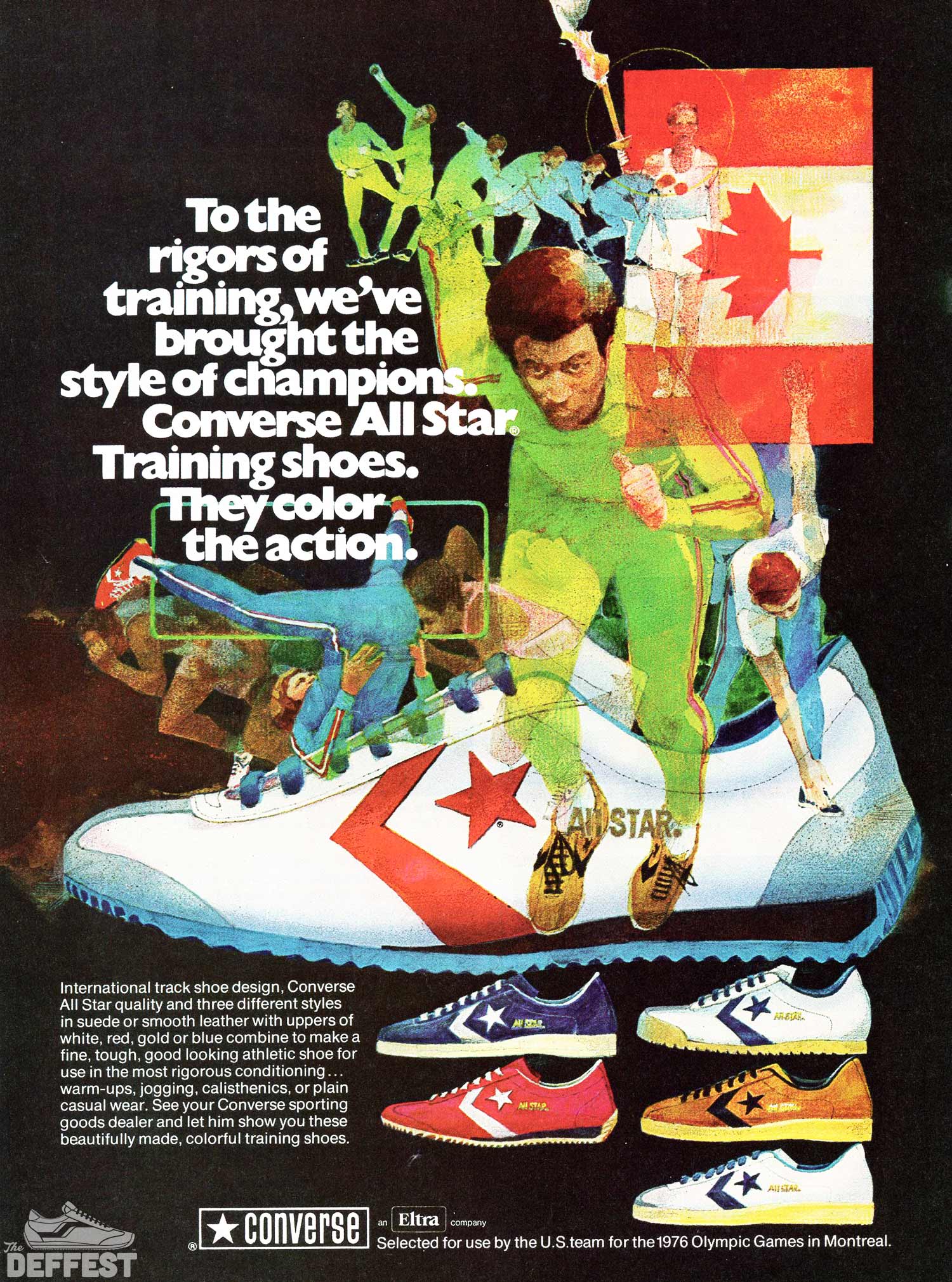Here’s a vintage running shoe write up of surveys from 1975 featuring various old school sneakers. The running shoe models in the pages below are the adidas SL 72 / SL76, Puma 9190, Asics / Onitsuka Tiger Jayhawk, Nike Boston 73 and Nike Roadrunner as well as the New Balance Interval.
The Tiger Pinto model that is referred to a couple of times below is featured on the cover of the 1977 book The Complete Book of Running by James Fixx which you can see at the amazon affiliate link here.
Page info is below:
It’s hard to attack success, and the SLs arc nothing if not successful. The runners we surveyed chose them twice as often as the nearest competitor among training shoes. (While not designed as a racing flat, the SLs still are third there in popularity.) And they rank first in overall quality, as determined in the preceding section. The well-elevated, round., well-supported heel is a popular Adidas innovation. The front of the shoe still gives some runners problems, however. They complain of cramped toes in that area (a familiar complaint about all Adidas, incidentally) and of inadequate padding underneath. We've lumped the two models-72 and 76—together here because the differences are in appearance only.
Shoe: Model Nos. 3470 (SL-72) and 3473 (SL-76). Introduced in 1970 (SL-72) and 1974 (SL-76). Available in 3.-15 (one width). Single size-nine shoe weighs 10, our. Suggested October 1975 price $29.95.
Upper: Nylon. Blue with white trim (SL-72), Green/yellow (SL-76). Rigid heel counter. Padded upper rim with extra-high achilles pad. Removable arch cushion.
Use: Worn by 16.1% of surveyed runners for training, 14,5% for racing. Drop rate (users divided by quitters) 22%.
Sole: Two layers, outer 1/4th inch, inner 1/8th inch. Good sole flexibility. Flat shank. Heel lift 7/16ths inch. Rounded at heel.
2. Puma 9190
Puma, Adidas' sometimes bitter competitor in track and field shoes, hadn't made a serious bid in the road market until fairly recently. Then Puma released the 9190—an answer to the SL-72. Though the 9190 is only half as popular among the runners we surveyed, it matches its rival point for point in all other respects. We rate it a close second in overall quality. Shoe: Model No. 9190. Introduced in 1970. Available in men's sizes 3-14 (one width). Single size-nine shoe weighs II ounces. Suggested October 1975 price about $28.
Upper: Nylon. Blue with white trim, red/white, gold/black. Rigid heel counter. Padded upper rim with extra-high achilles pad. Removable arch cushion.
Sole: Two layers, outer 1/4th inch, inner 1/8th Good flexibility at ball of foot. Flat shank. Heel lift 1/2 inch. Rounded at heel.
Use: Worn by 7.8% of surveyed runners for training. Drop rate (users divided by quitters) 15%.
By our figuring, the Jayhawk is the leader in racing flats. It trails its older brother, the Tiger Pinto, by miles in popularity. But the Jayhawk measures up better in all other categories except price ($5 more) and weight (an ounce heavier per shoe). The extra dollars and ounces give a heel counter, a supported arch and three layers of rubber under the forefoot. A recurring complaint about Jayhawk is that the top rim “bites in” at the heel.
Shoe: Model No. G-5. Introduced in 1974. Available in men's sizes 4-13 (one width). Single size-nine shoe weighs eight ounces. Suggested October 1975 price $21.95.
Upper: Nylon. Gold with blue trim. Rigid heel counter. Removable arch cushion.
Sole: Three layers, outer 1/8th inch, middle 1/16th inch, inner I /8th inch. Good flexibility at ball of foot. Flat shank. Heel lift 3/8ths inch. Rounded at heel.
Use: Worn by 6.7%of surveyed runners for racing, 1.0% for training. Drop rate (users divided by quitters) 13%.
4. Nike Boston '73
The racers love it. Only one other shoe, the Tiger Pinto, has of them in it among the runners we surveyed. We rate Boston much higher than the Pinto, largely because it has better arch support inside (built-in pad) and outside (flat shank). But we place it slightly behind the similar Tiger Jayhawk because the Boston lacks a solid heel counter and its sole material is a bit less durable. The Boston, like all Nikes, comes with a Spenco insole as standard equipment.
Shoe: Model No. 2420. Available in men's sizes 3.13 (one width). Single size-nine shoe weighs eight ounces. Suggested October 1975 price $21.95.
Upper: Nylon. Blue with white and gray trim. Minimal heel counter. Built-in arch support.
Sole: Two layers, both 1/8th inch. Good flexibility at ball of foot. Flat shank. Heel lift 3/8ths inch. Rounded at heel.
Use: Worn by 16.2% of surveyed runners for racing, 1.7% for training. Drop rate (users divided by quitters) 14%.
5. N.B. Interval 3:05
After more than a decade of relying on its old standby, the ripple sole, New Balance has switched to a more standard one—the so-called "SL" with the thick heel wedge and rounded back. And the venerable New England company has joined the swing to nylon with this new all-purpose shoe (it previously had only a racing model). The Interval looks promising enough to rate fifth in our analysis. Variable width is a big plus, as is the "flared" heel (wider at the ground than ; tithe heel counter. A minus is the "lip" around the rim which tates some people's heels.
Shoe: Introduced in 1975. Available in men's sizes 31/2AA to 15EEEE. Single size-nine shoe weighs 9'/2 ounces. Suggested October 1975 price $23.95.
Upper: Nylon. Blue with white and blue trim. Rigid heel counter. Padded upper rim. Removable arch cushion.
Sole: Two layers, outer 1/4th inch, inner 1/8th inch. Good flexibility at ball of foot. Flat shank. Heel lift 3/8ths inch. Rounded at heel.
Use: All-purpose shoe. Issued too late to be surveyed.
This one has exciting possibilities. The newly-released Road Runner stands out in nearly every category of our analysis: price (less than $20), sole make up (comparable to the Cortezes), light weight (just 8 1/2 ounces), etc. It remains to be tested by large numbers of runners. Their verdict is the critical one. But our guess is that it will at least be maintaining the number six rating a year from now. One drawback, however, be a sole which feels relatively harder than most Nikes.
Shoe: Introduced in 1975. Available in men's sizes 3-13 (one width). Single size-nine shoe weighs 8 1/2 ounces. Suggested October 1975 price $19.95.
Upper: Nylon. Green with blue and yellow trim. Rigid heel counter. Extra-high achilles pad. Removable arch cushion.
Sole: Two layers, outer 1/4th inch, inner 3/8ths inch. Fair flexibility at ball of foot. Flat shank. Heel lift 7/16th inch. Rounded at heel.
Use: All-purpose shoe. Issued too late to be surveyed.
1975 retro running shoe models featuring adidas, Puma, Tiger, Nike and New Balance
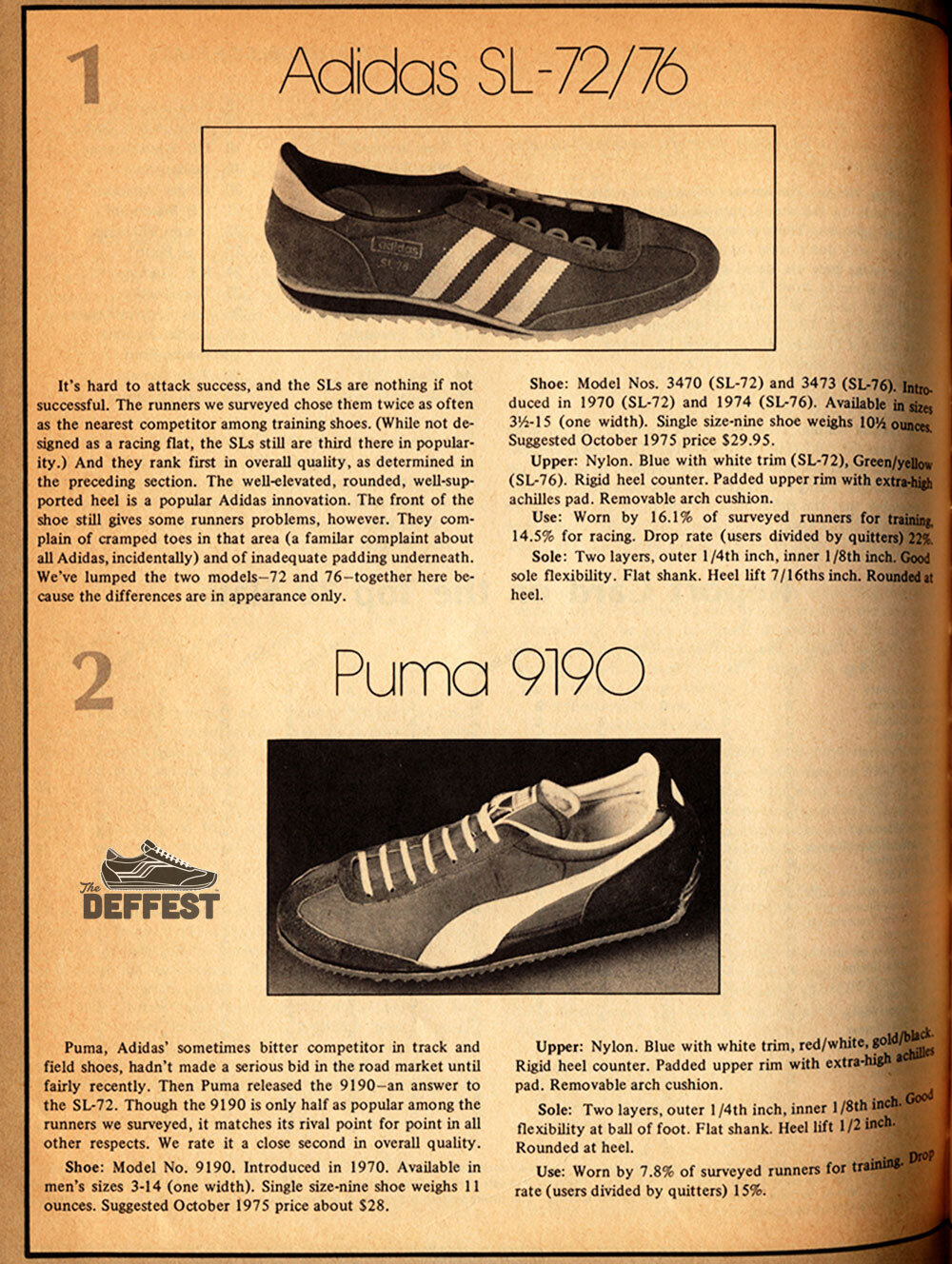
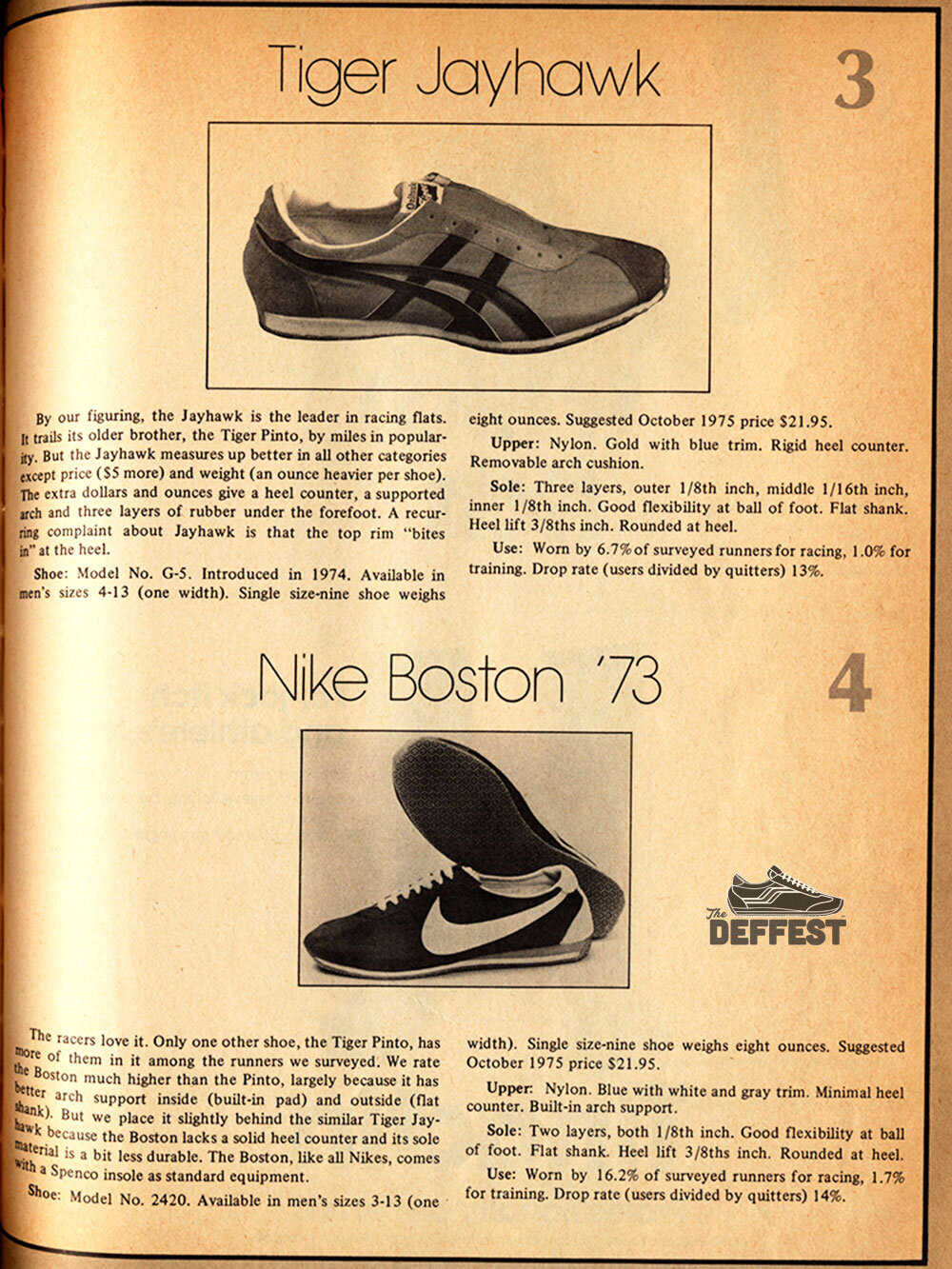
New Balance Interval and Nike Roadrunner vintage running shoe models.
